Motor Recycling
Motor recycling is dismantling electric motors to recover copper, steel and aluminum. These materials can be used to make new products. Motors are found in many common devices such as appliances, fans, pumps and tools. Recycling ensures their valuable parts are reused, not wasted and conserved when they break or get old.
Advantages of Motor Recycling
Reduces Landfill Waste
One of the biggest benefits of electric motor recycling is that it reduces the amount of waste sent to landfills. Instead of motors piling up, their parts can be used again.
Conserves Natural Resources
Recycling electric motors means fewer new materials need to be mined. This helps conserve natural resources like copper, which is used in many everyday products.
Saves Energy
Producing new metals from recycled materials takes much less energy than mining and processing new raw materials. This means electric motor recycling helps save energy and reduce pollution.
Creates Jobs
The recycling industry creates jobs in local communities. Collecting, processing, and selling recycled materials require workers, which helps boost the economy.
-
Electric Motor RecyclingMotor cutting and drawing machine is mainly used for stator copper cutting and drawing.All kinds of motor stator with outer diameter of 100-250mm can be machined.First cut the stator/motor in half, then remove all internal copper, all steps in 2 steps.read more
-
Recycling Electric MotorsThe use of hydraulic system, the removal function is stable, greatly improve the removal efficiency, reduce the labor intensity.The cutting blade is made of high-wear-resistant carbide material, which is easy to operate, reliable, fast cutting speed, no adhesive force and burr.read more
-
Electric Motor RecyclersThis device is a product independently developed by our company, with high positioning efficiency. After the stator is cut in half, all copper windings can be taken out within 2 times, which leads to high economic benefit.read more
-
Electric Motor Recycling MachineAupu Machinery provide all kinds of high quality motor recovery machines, including various types of stator recovery machines.The equipment provided is a waste recovery equipment widely used for cutting copper, iron and aluminum cover.read more
-
Small Electric MotorsThe equipment provided is a waste recovery equipment widely used for cutting copper, iron and aluminum cover.read more
-
Electric Motor ScrapWe provide customers with solutions and expertise from single equipment to complete production line, including overall project planning, installation and debugging, operation training, etc.read more
-
Remove Copper Winding Motor Core ScrapFor single stator processing specifications (e.g., washing machine motor stator, etc.), separate the copper windings from the stack. Scope of application: stator inner diameter 40-60mm, stator outer diameter > 100mm, silicon steel thickness <50mmread more
Why Choose Us
Our factory
Our company is a professional design and manufacture company of hydraulic machinery. We are a backbone company in manufacturing all kinds of hydraulic equipment and metal machineries in domestic.
Our product
Our products have 13 series, a total of more than one hundred varieties, including Y81 series hydraulic metal baling machine, Y82 series non-metal hydraulic baling machine, Y82 series scrap tire baling machine, Y83 series hydraulic scrap metal briquetting press, HBS series large shearing baler, Q43 series crocodile hydraulic shears, Q15 series gantry plate shears, Y32 series four-column hydraulic press, EPM series automatic waste paper baler, KSB series waste shredder and so on.
Production market
Our products have been exported to more than 40 countries, such as Russia, Australia, USA, UK, Germany, Ukraine, Iran, Romania, Hungary, Mexico, Brazil, Chile, Canada, Spain, Colombia, etc. We have agents in the USA, Australia, Singapore, Kuwait, Russia.
Our certifications
Our company has been through professional quality system certification, CE certification, SGS audit and as a member of the China national resources recycling association.
Types of Motor Recycling
There are different types of electric motors and each one can be recycled
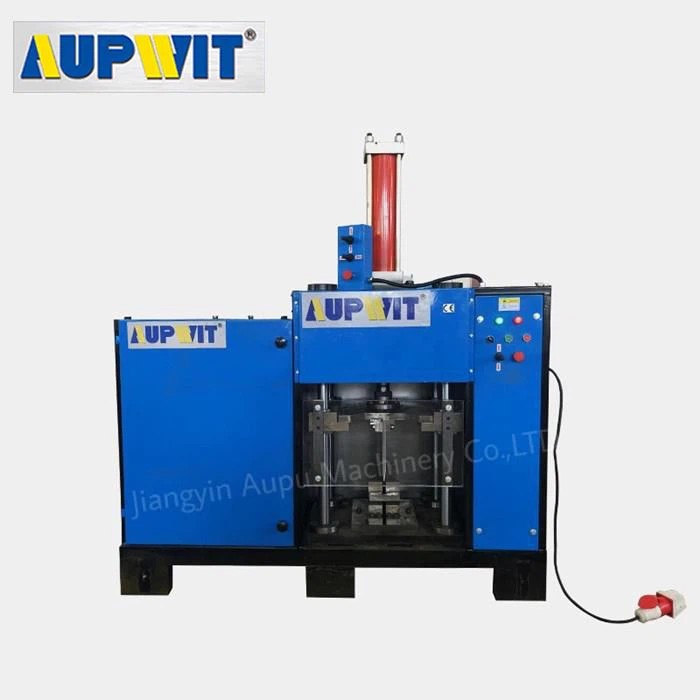
AC Motors
Found in home appliances like refrigerators and air conditioners. AC motors are recyclable and contain copper and steel.
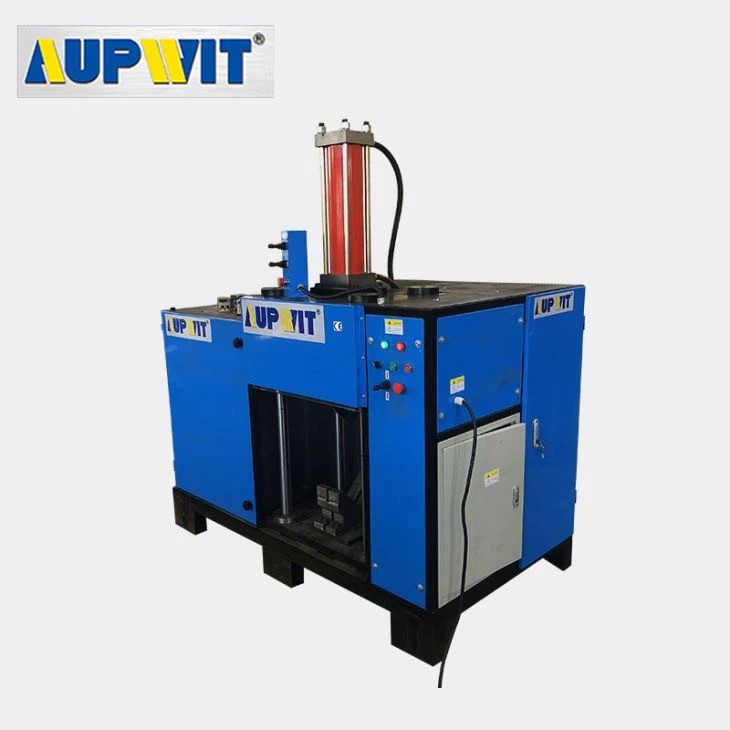
DC Motors
Used in cars, power tools and some household devices. DC motors contain copper and other metals that can be recycled.
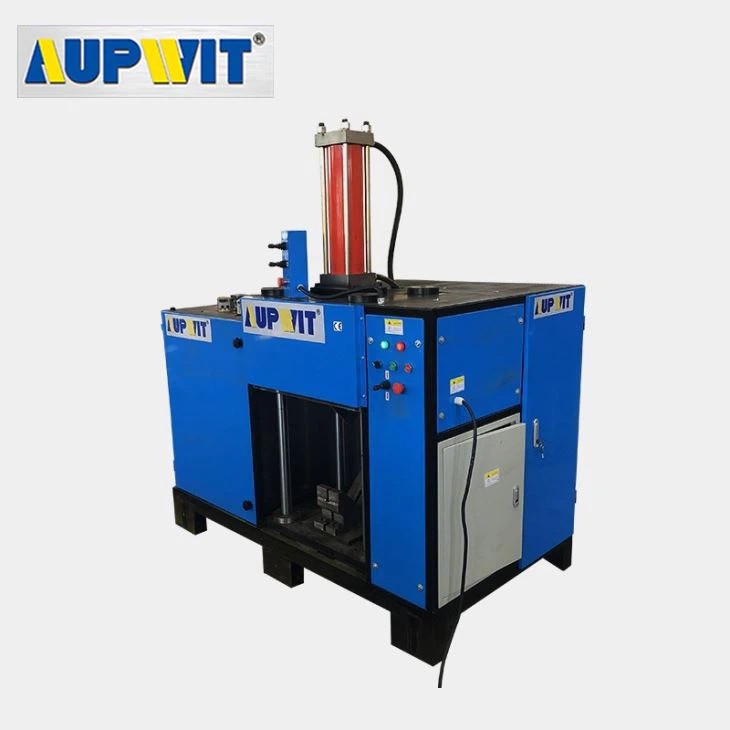
Large Industrial Motors
They are used in factories and can be big. They contain a lot of valuable materials so they should be recycled.
How Motor Recycling Works?
Collection of Motors
The first step in electric motor recycling is to collect old or damaged motors. This can be done through recycling programs, scrap yards, or directly from manufacturers. Your role in this process is crucial, as every motor you recycle contributes to a healthier environment.
Disassembly of Motors
Next the motors are disassembled. This is often done by machines or by hand. The motor is broken into parts to separate materials like copper, steel, and aluminum.
Sorting of Materials
Once the motor is taken apart the materials are sorted. Copper wires, steel frames and aluminum components are collected separately.
Recycling of Metals
After sorting the metals are sent to recycling facilities. Here, they are melted and refined so they can be used to manufacture new products.
Reuse of Materials
The recycled metals are then used to make new products. Copper, for example, is used in new electrical wiring; steel and aluminum can be turned into car parts or construction materials.
How You Can Recycle Motor Recycling
If you have old electric motors lying around, it’s easy to get them recycled
Check with Local Recycling Centers
Many local recycling centers accept electric motors. Call ahead to see if they take them and if there are any special rules for dropping them off.
Use a Scrap Yard
Scrap yards are always looking for valuable materials like copper and steel. You can take your old motors to a scrap yard, and they may even pay you for the materials.
Contact an E-Waste Recycler
Some e-waste recycling companies specialize in recycling electronics and their components. Many of these companies offer drop-off services or even pick-up for large items.
Partner with Manufacturers
Some manufacturers offer recycling programs for their products. If your motor came from a specific brand, check if they have a take-back program.
Tips for Maximizing Value and Getting the Best Motor Recycling
Now that we’ve uncovered the superhero components in your electric motor, it’s time to talk strategy. Think of these tips as your secret weapon for getting the most value out of your recycling game.
Clean your electric motor
Before saying goodbye to your motor, give it a good cleaning. No need for fancy tools – a simple wipe-down works wonders. Clean electric motors are more valuable, and it’s like giving your motor a vip pass to the recycling party.
Take it apart, smart
Dismantling might sound fancy, but it’s just a cool way of saying take it apart. Remove any extra bits like screws or plastic. This helps recycling folks get to the good stuff faster, meaning more value for you.
Spot the treasures in electric motors
Remember those superhero metals we talked about? Copper and aluminum are the real treasures. When you can, spot them and separate them from the rest. It’s like picking out the shiny gems from a treasure chest.
Avoid oops moments
Mistakes happen, but some can cost you cash. Avoid things like damaging the motor during removal or tossing in non-metal bits. Every piece counts, so treat your motor like the goldmine it is.
These tips might sound simple, but trust us, they’re the secret sauce to unlocking that extra value.
The Significance of Motor Recycling Maintenance
Enhancing operational life
Recycling machines, such as balers and compactors, are subjected to heavy usage in recycling facilities. Regular maintenance can significantly extend their operational life, ensuring that you get the most out of your investment.
Ensuring safety
Proper maintenance not only enhances performance but also ensures the safety of workers operating these machines. Regular inspections can identify and rectify potential safety hazards, preventing accidents and injuries.
Improving efficiency
Well-maintained recycling machines operate at peak efficiency. This means that they can process more materials in less time, ultimately increasing your recycling facility’s productivity.
How to Maintain Your Motor Recycling for Optimal Performance
A good, high-quality piece of recycling equipment can last for many years, however, without proper maintenance and preventative measures, this can be shortened by a significant amount. In this blog, we’ll discuss some of the most important methods to help keep your equipment in great condition, allowing you to use your investment for many years to come.
Always keep spare parts
It’s difficult to know when your machine will begin having onset issues, or fail completely. Because of this, it can be incredibly beneficial to keep a selection of spare parts on hand.
You should store standard spare parts of any machine you operate, ready to be replaced in case of equipment breakdown. For rarer, or more expensive parts, it’s always worth keeping a point of contact with your supplier in case you need to order a replacement part.
Check your equipment daily
Performing regular maintenance checks on your equipment can help you not only have a better understanding of how your machine works, but also give you a general idea of which parts are ageing, or likely to fail soon.
When checking your equipment, you should be checking for any points which need greasing, any filters which need cleaning or replacing as well as any dust or debris buildup which may need clearing. Doing this will protect seals, motors and other moving parts as well as reduce heat exposure to the machine.
If your machine has them, it’s also worth checking foot pedals and control cables to ensure the safe operation of your machine.
Cable granulators, for example, require more attention and should be checked more often to ensure airlines and filters are clear. You should also always have 3 sets of blades per machine. One that is being used, one on-site ready in case you need a replacement, and one more being sharpened to ensure continuous efficient operation.
Operate machinery correctly
You should always operate your machine exactly as intended. Doing this not only ensures the safety of the operator but also your machine.
Taking shortcuts can be dangerous, and can result in costly damage which could leave your machine inoperable.
Any staff using your machine should be adequately trained on all of the manufacturers correct practices and procedures.
Our factory
Our company has been through professional quality system certification, CE certification, SGS audit and as a member of the China national resources recycling association. Machine main core parts, use Germany Siemens motor, France Schneider electric, USA KK pressure gauge, USA parker valve, Germany Rexroth valve, Pikes high-pressure hose. Technology and performance of our products has reached the industry leading level, and has won the trust of the customers. Our company is a professional design and manufacture company of hydraulic machinery. We are a backbone company in manufacturing all kinds of hydraulic equipment and metal machineries in domestic.
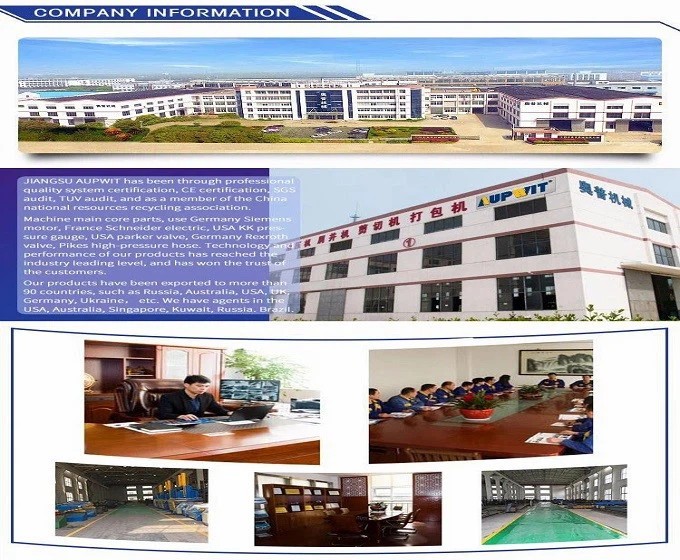
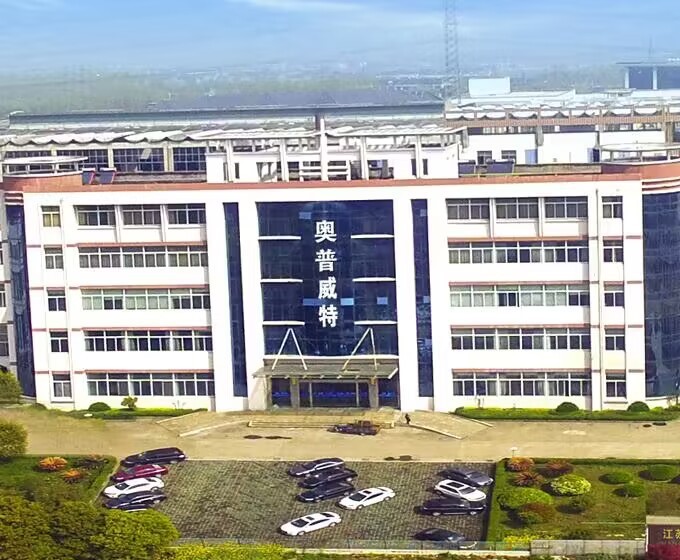

FAQ
Q: What is motor recycling?
Q: Why is motor recycling important?
Q: How can businesses benefit from motor recycling?
Q: How is copper recovered from motors?
Q: What role do recycling facilities play in motor recycling?
Q: Can electric vehicle motors be recycled?
Q: What is the impact of improper motor disposal?
Q: How can consumers find recycling options for motors?
Q: What innovations are being made in motor recycling?
Q: How does motor recycling contribute to sustainability?
Q: What types of motors can be recycled?
Q: What materials can be recovered from recycled motors?
Q: How are motors disassembled for recycling?
Q: What are the economic benefits of motor recycling?
Q: What can individuals do to promote motor recycling?
Q: What is the process of motor recycling?
Q: What are the environmental benefits of motor recycling?
Q: Can individuals recycle old motors?
Q: What should be done before recycling a motor?
Q: Are there any regulations regarding motor recycling?
We're well-known as one of the leading waste baler manufacturers and suppliers in China. If you're going to buy high quality waste baler made in China, welcome to get more information from our factory.








